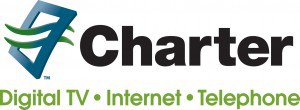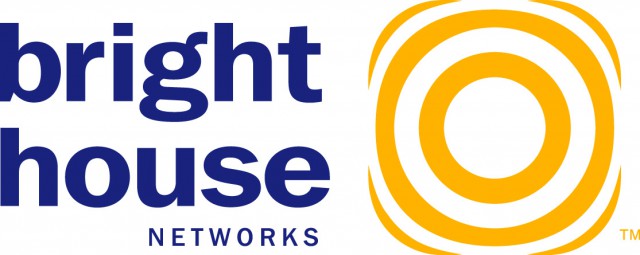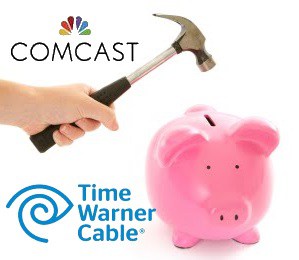Simple Website Flaw Discovered by 18-Year Old Exposed Personal Data of Millions of Charter Customers
 A security flaw exposed the personal data of millions of Charter Communications customers nationwide, including payment details, account holders’ names and addresses, and specifics about the equipment used to receive Charter service.
A security flaw exposed the personal data of millions of Charter Communications customers nationwide, including payment details, account holders’ names and addresses, and specifics about the equipment used to receive Charter service.
Eric Taylor, 18, discovered the simple website flaw which could be exploited to expose private account information with the use of a simple header modification using a browser plug-in.
The flaw was similar to one discovered recently in Verizon’s online customer service portal. But Taylor claims Charter’s vulnerabilities exposed “way way way more” private customer information.
Fast Company, which first published the story about the security breach, notified Charter in advance of publishing the story, allowing the company to close the breach within hours before it became widely known.
Charter immediately downplayed the security risks involved.
 “The vast majority of Charter customers use a version of the site on which this security vulnerability was not an issue,” a company spokesperson explained, noting the number of customers affected was less than one million. The company is auditing its systems, he said, and has so far “seen no evidence of any password or data hacks.” The exposed data did not include credit card numbers.
“The vast majority of Charter customers use a version of the site on which this security vulnerability was not an issue,” a company spokesperson explained, noting the number of customers affected was less than one million. The company is auditing its systems, he said, and has so far “seen no evidence of any password or data hacks.” The exposed data did not include credit card numbers.
Taylor and other security researchers believe the flaw was more serious than Charter was willing to admit.
“In theory, anyone with minor programming skills could code an automated program that scans every Charter IP and returns the customers billing info,” Taylor explained. Because ISPs like Charter distribute Internet services through blocks of IP addresses, an ambitious hacker could have incrementally added the number 1 to the end of a targeted address and see a different Charter customer’s account details each time.
“Personal information leakage as a result of such a vulnerability opens customers up to being attacked on other services such as email providers, cellular providers, and work-related functions with many untold consequences,” said Hector “Sabu” Monsegur, a former black hat hacker and security consultant.


 Subscribe
Subscribe Bright House Networks, the sixth largest U.S. cable operator, will abandon its preliminary $10.4 billion deal to be acquired by Charter Communications, according to
Bright House Networks, the sixth largest U.S. cable operator, will abandon its preliminary $10.4 billion deal to be acquired by Charter Communications, according to  Your credit worthiness now plays a more important factor in determining whether you can sign up for service with Charter Communications, and if you fail to pay the company has stepped up collection efforts to bring past due or canceled accounts up to date.
Your credit worthiness now plays a more important factor in determining whether you can sign up for service with Charter Communications, and if you fail to pay the company has stepped up collection efforts to bring past due or canceled accounts up to date.
 Bright House is coveted by Charter as a stepping stone to a much larger acquisition of Time Warner Cable. Charter’s balance sheet is loaded with debt and its stock isn’t worth as much as that of Time Warner Cable. Combining Bright House’s two-million subscribers with Charter’s own five million customers strengthens Charter’s balance sheet and increases its borrowing capacity as it prepares to acquire Time Warner Cable for a second time.
Bright House is coveted by Charter as a stepping stone to a much larger acquisition of Time Warner Cable. Charter’s balance sheet is loaded with debt and its stock isn’t worth as much as that of Time Warner Cable. Combining Bright House’s two-million subscribers with Charter’s own five million customers strengthens Charter’s balance sheet and increases its borrowing capacity as it prepares to acquire Time Warner Cable for a second time. The Newhouse family is sitting in a lucrative position as it is courted by the two larger cable operators. One of those familiar with the talks suggested Time Warner was offering the Newhouse family influence in a combined Bright House-Time Warner Cable, because its offer would leave the Newhouse family as the largest individual shareholder of the combined company. Charter’s offer would hand power to John Malone’s Liberty Broadband, and leave the Newhouse family with little, if any voice.
The Newhouse family is sitting in a lucrative position as it is courted by the two larger cable operators. One of those familiar with the talks suggested Time Warner was offering the Newhouse family influence in a combined Bright House-Time Warner Cable, because its offer would leave the Newhouse family as the largest individual shareholder of the combined company. Charter’s offer would hand power to John Malone’s Liberty Broadband, and leave the Newhouse family with little, if any voice.
 Charter has deals pending with both Comcast and Time Warner Cable to launch GreatLand Connections and have plans to takeover Bright House Networks, both contingent on the Comcast-Time Warner Cable merger getting approval.
Charter has deals pending with both Comcast and Time Warner Cable to launch GreatLand Connections and have plans to takeover Bright House Networks, both contingent on the Comcast-Time Warner Cable merger getting approval.